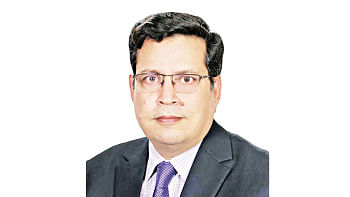Our forgotten elderly

"Why did the chicken cross the road?"
"Because it was still young enough to do so safely!"
When I lived in Hanoi back in the 1990s, occasionally an elderly woman would grasp my arm so that I could help her cross the street. It was not because she was too frail – but because she was afraid of the traffic, which was morphing from mostly gentle, peaceful, non-polluting, and non-intimidating bicycles to featuring many motorcycles and the occasional car.
On a recent visit to Hanoi, I collided with a motorcycle and fell while crossing the street. Fortunately, the road was mostly empty, so I didn't have to worry about someone else running over me. But the couple on the motorbike were greatly concerned on seeing a grey-haired woman lying in the street. Despite not being hurt, after that incident I was terrified of crossing the street.
I also realised, "Oh dear, I am now one of those elderly women who fear street crossings."
In many cities around the world, elderly people literally cannot cross the road because the timing on crossing signals is too brief. At least we don't have that problem in Dhaka, if only due to the absence of functional traffic lights.
For several years, I lived across Saat Masjid Road from Dhanmondi Lake. On many mornings, I would watch an elderly stroke survivor slowly crossing the road so that he could walk along the lake. In the early mornings, many people – including or especially the elderly – go for walks at the lake. The road was fairly empty, which meant that drivers sped along so fast that they could easily have killed someone on foot. There was no way that the stroke survivor, or other elderly people with health issues, could run to save their lives. But somehow, the right of drivers to speed is considered more important than the right of the elderly (and others) to move about safely.
The more I think about Asian cities, the more I see how they have become places for the young and able-bodied. Small children, the elderly, and people with disabilities – and anyone timid – is essentially unwelcome. "Learn to deal with the risk or stay off the streets" seems to be the motto.
Young readers, please don't be snide. There are only two options: you get old or you don't. And you may be surprised how quickly the years can fly by. Besides, all of us have elderly relatives who we do not wish to see trapped in the home. The city should be welcoming for everyone, and should not terrify those who cannot run and leap out of harm's way.
Nor is it just about the scary roads, though that's a big part of it. How are you to move about if you are terrified to walk? Many of our trips are within the neighbourhood; elderly people in particular need social contact and will die early if they are socially isolated. We need to ensure that there are attractive outdoor public spaces in each neighbourhood where the elderly can gather, and that they can reach these places safely on foot. Being able to walk to a place where they can socialise outdoors will improve their mental as well as physical health. And surely we want that for our elderly?
Important as walking is, there is also the potential for the elderly to ride bicycles. In the Netherlands, a significant portion of those in their 70s and 80s continue to cycle. A quarter of trips by those aged 65 and over are by bicycle in that mecca of cycles.
Buses, too, need to be addressed. How easy is it, after all, for an elderly to leap on and off a bus here in Dhaka? Or to climb the steep stairs? Again, why have we designed a transport system that ignores the needs of much of the population?
We talk about child-friendly cities (at least, occasionally). We pay respect to the elderly. But we also allow our cities to become aggressive, fast-paced, and terrifying places, where people not only fear injury and death, but regularly find their fears becoming a reality. We could do much better by our elderly – and benefit everyone else in the process.
Debra Efroymson is executive director of the Institute of Wellbeing.
Views expressed in this article are the author's own.
Follow The Daily Star Opinion on Facebook for the latest opinions, commentaries and analyses by experts and professionals. To contribute your article or letter to The Daily Star Opinion, see our guidelines for submission.

 For all latest news, follow The Daily Star's Google News channel.
For all latest news, follow The Daily Star's Google News channel. 








Comments